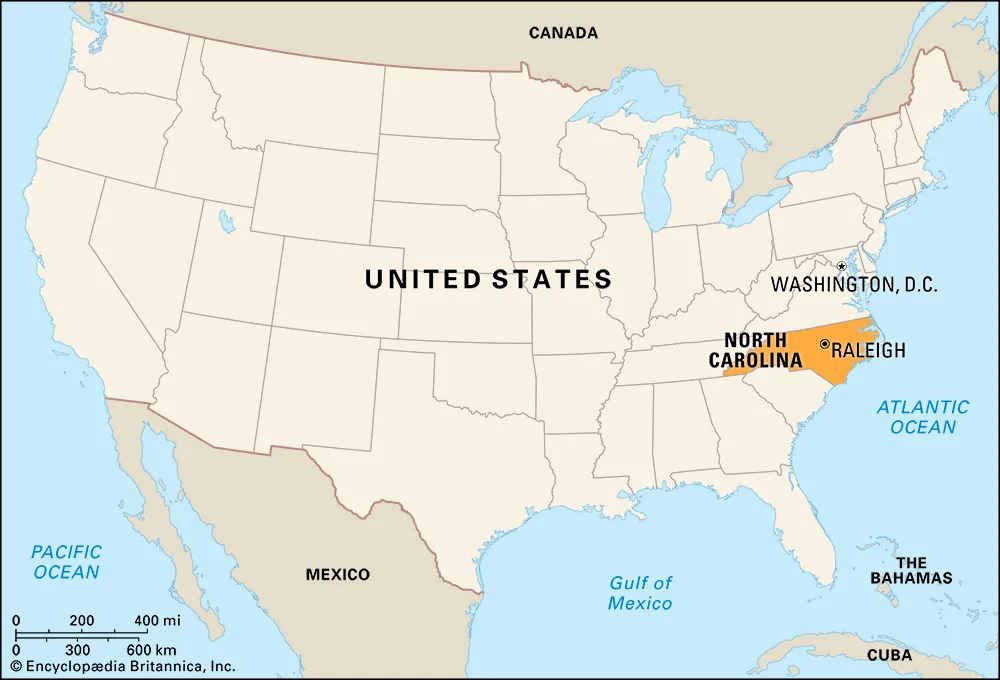
What is a Registered Agent in North Carolina?
In North Carolina, a Registered Agent serves as the designated individual or business entity that receives legal documents, government communications, and compliance-related notices on behalf of a business. This role is essential for ensuring that the business remains in good legal standing and is able to respond to legal actions or compliance requirements in a timely manner.
Key aspects of a Registered Agent in North Carolina include:
Official Point of Contact: The Registered Agent acts as the official point of contact between the state and the business, receiving important documents such as service of process, lawsuit notifications, and state compliance communications.
Requirement for Businesses: All formal business entities, including corporations, limited liability companies (LLCs), and partnerships, are required by North Carolina law to appoint a Registered Agent.
Physical Presence: The Registered Agent must have a physical address in North Carolina (not a P.O. Box) where they can be reached during normal business hours.
Eligibility: A Registered Agent in North Carolina can be an individual resident of the state or a business entity authorized to do business in North Carolina, as long as they have a physical address within the state.
Public Record: The name and address of a business’s Registered Agent are part of the public record and can be accessed through the North Carolina Secretary of State’s website.
Having a reliable Registered Agent is crucial for maintaining the legal compliance of your business in North Carolina, ensuring that all critical legal and state documents are handled properly.
How can I determine if my North Carolina business needs a Registered Agent?
In North Carolina, the requirement for a Registered Agent applies to most formal business entities. To determine if your North Carolina business needs a Registered Agent, consider the following factors:
Business Entity Type: If your business is registered as a corporation, limited liability company (LLC), limited partnership (LP), limited liability partnership (LLP), or any other formal business entity with the North Carolina Secretary of State, you need a Registered Agent.
Foreign Entity: If your business is formed in another state but operates in North Carolina (i.e., it is a foreign entity conducting business in North Carolina), you are required to have a Registered Agent in North Carolina. This ensures that the state has a reliable point of contact for legal and official communications.
Compliance Requirements: The state of North Carolina requires businesses to have a Registered Agent to facilitate the communication of important legal documents, tax notices, and compliance-related correspondence. A Registered Agent ensures that your business can stay aware of any legal obligations or actions.
Businesses that fall into any of the above categories must designate a Registered Agent in North Carolina. The Registered Agent must have a physical address in the state where they can receive documents during normal business hours. It’s important to note that a P.O. Box is not sufficient as a registered office address.
For sole proprietorships and general partnerships that are not registered entities, the requirements for a Registered Agent may vary. However, if these businesses choose to register with the state or form a formal entity, they may be required to appoint a Registered Agent.
If you are uncertain about whether your business needs a Registered Agent in North Carolina, it is advisable to consult with a legal professional or contact the North Carolina Secretary of State to obtain accurate information based on your specific circumstances.
What does a Registered Agent do for a North Carolina business?

A Registered Agent plays a crucial role in maintaining the legal compliance and operational integrity of a business in North Carolina. Below are the primary responsibilities and functions of a Registered Agent:
Service of Process: The Registered Agent receives legal documents on behalf of the business, including but not limited to, lawsuits, summons, and subpoenas. This ensures that the business can respond appropriately and in a timely manner to legal actions.
Official Notices: They act as the designated recipient for official government communications. This includes tax notices, compliance documents, and annual report notifications from the North Carolina Secretary of State.
Compliance Reminders: Many Registered Agents provide additional services such as reminding the business of important filing deadlines like annual reports and tax returns, helping the business maintain good standing with the state.
Accessibility: A Registered Agent must be available at a physical location within North Carolina during standard business hours, ensuring the business can reliably receive important documents.
Having a Registered Agent is not just a legal requirement for most businesses in North Carolina; it is also a practical measure to safeguard the business against missed deadlines, unattended legal actions, and potential non-compliance with state laws. The role of the Registered Agent is to provide a consistent point of contact for important and sensitive documents, allowing the business owners to focus on running their business while staying compliant with necessary legal and state requirements.
Are there any legal requirements specific to North Carolina when selecting a Registered Agent for my business?
Yes, North Carolina sets forth specific legal requirements that must be followed when selecting a Registered Agent for your business. Understanding and adhering to these requirements is crucial for ensuring that your business remains in compliance with state law. Here are the key requirements:
Physical Address: The Registered Agent must have a physical street address in North Carolina. This address, known as the registered office, cannot be a P.O. Box. It is the place where the Registered Agent is available to receive service of process and official documents.
Availability: The Registered Agent must be available at the registered office during regular business hours to accept legal documents and official notices on behalf of the business. This ensures that the business can be promptly and effectively notified of any legal actions or compliance requirements.
Qualification: The Registered Agent can be an individual who resides in North Carolina or a business entity (such as a corporation or limited liability company) that is authorized to conduct business in North Carolina. If the Registered Agent is a business entity, it must have a business office that is the same as the registered office.
Consent: While North Carolina does not specifically require written consent from the Registered Agent for their appointment, it is highly recommended and often considered best practice to have written consent. This helps ensure that the Registered Agent is willing and prepared to fulfill their responsibilities.
Adhering to these requirements when selecting a Registered Agent is vital for the smooth operation of your business and for maintaining compliance with North Carolina state laws. Failure to meet these requirements can lead to various complications, including the inability to receive important legal documents and potential administrative actions against your business by the state.
How often should a North Carolina business update its Registered Agent information?

In North Carolina, there isn’t a set schedule for how often a business must update its Registered Agent information. However, it is essential to update this information any time there is a change. This includes a change in the Registered Agent’s address, a change in the Registered Agent themselves, or any other modification that affects how the Registered Agent can be contacted or perform their duties. Here are instances when you should update your Registered Agent information:
Change of Registered Agent: If you decide to change who your Registered Agent is, you must file the appropriate paperwork with the North Carolina Secretary of State to make this update official.
Change of Address: If your Registered Agent’s address changes (even if the agent remains the same), you are required to notify the state. The address must always be current to ensure the effective delivery of legal and state documents.
Change in Business Structure or Status: Any change in your business structure or status that affects your Registered Agent or their duties should prompt an update.
It’s good practice to verify your Registered Agent information at least annually, even if no changes are anticipated. This can often be done in conjunction with filing your annual report, a requirement for most businesses in North Carolina. Keeping your Registered Agent information current ensures that your business remains in good standing with the state and avoids missed communication that could lead to legal or compliance issues.
To update your Registered Agent information, you must file the appropriate forms with the North Carolina Secretary of State and pay any necessary filing fees. This can typically be done online through the Secretary of State’s official website or by mailing in the required documentation.
What is the easiest way to get a Registered Agent in North Carolina?
Finding and appointing a Registered Agent in North Carolina can be straightforward and hassle-free, especially when you utilize a professional service that specializes in this area. One of the easiest ways to secure a Registered Agent for your business is through FormPros. FormPros offers a Registered Agent service that is designed to meet all legal requirements in North Carolina, ensuring that your business remains in good standing with the state.
Here are some reasons to consider FormPros for your Registered Agent needs:
Professional Service: FormPros specializes in business formation services and provides professional Registered Agent services, ensuring that your legal documents are handled with care and expertise.
Compliance: Our Registered Agent service helps your business stay compliant with North Carolina state regulations, avoiding any administrative complications.
Privacy: Using FormPros as your Registered Agent acquisition service enhances your business’s privacy. The Registered Agents’ address is listed on public records, shielding your personal or business address from being publicly accessible.
Peace of Mind: With a Registered Agent obtained via FormPros, you won’t have to worry about missing important legal notices or deadlines. The Registered Agent will handle and forward all documents received on your behalf, ensuring that you stay informed and responsive.
Easy Setup: Setting up a Registered Agent service through FormPros is straightforward and quick. Our user-friendly platform guides you through the process, making it easy to ensure that your business’s Registered Agent needs are met without any hassle.
Choosing FormPros as your Registered Agent service provider offers a seamless solution that takes care of this crucial aspect of your business. Not only will the Registered Agent meet the legal requirements set forth by North Carolina, but they also provides reliability, professionalism, and peace of mind, allowing you to focus on other important aspects of running your business.
Utilize FormPros today to learn more about our Registered Agent service and how it can benefit your North Carolina business.
How do I change a Registered Agent in North Carolina?

Changing your Registered Agent in North Carolina is a straightforward process that involves filing the appropriate documents with the North Carolina Secretary of State. Here’s a step-by-step guide to help you through the process:
Choose a New Registered Agent: Before filing any paperwork, ensure that you have a new Registered Agent lined up. Remember, the new agent must comply with all North Carolina legal requirements for Registered Agents, including having a physical address within the state.
Obtain Consent: While North Carolina law does not explicitly require you to obtain written consent from your new Registered Agent, it’s a best practice to have it. This ensures they are willing and ready to take on the responsibilities.
Complete the Change of Registered Agent Form: You’ll need to fill out the “Statement of Change of Registered Office and/or Registered Agent” form. This form requires information about your business, including its name and the new Registered Agent’s name and address.
File the Form: Once completed, file the form with the North Carolina Secretary of State. This can be done online, by mail, or in person. There is a filing fee associated with this form, so be sure to check the current fee on the Secretary of State’s website.
Wait for Confirmation: After filing, you will receive confirmation from the Secretary of State’s office. Keep this confirmation for your records to document the change in your Registered Agent.
Once the process is complete, your new Registered Agent will officially take on the role of receiving important legal documents, tax notices, and other official communications on behalf of your North Carolina business. It’s important to promptly update your Registered Agent information to ensure compliance and maintain good standing with the state.
For the most current forms and detailed instructions, including any updates to the filing process or fees, visit the North Carolina Secretary of State’s website.
Can I be my own Registered Agent in North Carolina?
Yes, in North Carolina, you can serve as your own Registered Agent for your business as long as you meet specific legal requirements. Many business owners choose to act as their own Registered Agents, but it’s important to understand what this role entails to ensure compliance with state laws. Here are the requirements you must adhere to if you decide to be your own Registered Agent:
Physical Address: You must have a physical street address in North Carolina. This cannot be a P.O. Box. The address must be where you can physically receive service of process and other important documents during normal business hours.
Availability: You must be available at the designated physical address during regular business hours to accept legal documentation, notices from the government, and other official communications on behalf of your business.
Being your own Registered Agent has its advantages, such as potentially saving on the fees that would be paid to a third party for Registered Agent services. However, there are also considerations to keep in mind:
Privacy: As the Registered Agent, your address will be part of the public record, which may not be ideal if you’re seeking to keep your personal information private.
Responsibility: You are responsible for handling and responding to all legal and official documents received. Missing or mishandling these documents could lead to legal complications for your business.
Business Hours: You’ll need to ensure that you’re consistently available during normal business hours, which could be restrictive depending on your personal and business schedules.
If you choose to be your own Registered Agent, it’s crucial to stay organized and ensure that your availability and address compliance do not lapse. Should your situation change and you can no longer meet these requirements, you’ll need to promptly update your Registered Agent information with the North Carolina Secretary of State to maintain compliance with state laws.
Is it possible to appoint an out-of-state Registered Agent for your North Carolina business?
No, North Carolina law requires that your business’s Registered Agent must have a physical address within the state. This requirement ensures that the Registered Agent is readily available to accept service of process and other official government correspondence in person. Here are some specific details regarding the appointment of a Registered Agent for your business in North Carolina:
Physical Address Requirement: The Registered Agent must have a physical street address in North Carolina, known as a registered office. P.O. Boxes or virtual offices are not acceptable for this purpose.
Availability: The Registered Agent must be available at the registered office during normal business hours to receive legal documents, notices, and other important communications on behalf of the business.
Business Entities and Individuals: The Registered Agent can be either an individual resident of North Carolina or a business entity authorized to do business in the state. However, if the Registered Agent is a business entity, it must also have a physical address within the state.
While you cannot appoint an out-of-state individual or entity as your Registered Agent in North Carolina, you do have the option of using a professional Registered Agent service that operates within the state. These services offer the advantage of ensuring compliance with the physical address requirement while also providing experience and expertise in handling important legal and state documents.
Are Registered Agents from North Carolina responsible for any fees or taxes?

In their role as Registered Agents, individuals or entities in North Carolina do not have direct responsibility for paying fees or taxes on behalf of the businesses they represent, merely for acting in this capacity. Their primary duty is to receive and handle legal documents, such as service of process, and official communications for the business. However, there are related aspects and obligations to be aware of:
Filing Fees: While Registered Agents themselves are not responsible for paying fees or taxes due to their status, the business will need to pay a filing fee to the North Carolina Secretary of State when appointing or changing a Registered Agent. It’s important to note that these administrative fees are the responsibility of the business, not the Registered Agent.
Business Taxes and Fees: Any taxes or annual fees are owed by the business to state and federal government entities. The Registered Agent’s role might include ensuring that the business is made aware of these obligations by forwarding any relevant notices received, but the legal responsibility for payment rests with the business.
Service Fees: If the business is using a professional Registered Agent service, they will pay service fees to the Registered Agent or the service company. These fees are for the service of being the Registered Agent and are separate from state-mandated taxes and fees the business must pay.
While Registered Agents play a crucial role in maintaining a business’s compliance with legal requirements, their duties are primarily administrative and do not extend to financial responsibilities such as tax payments for the business. It is always the business’s obligation to stay informed and current on all required payments and filings.
Sign Up for a Registered Agent in North Carolina Now
State Specific Registered Agent Service
- Alabama
- Alaska
- Arizona
- Arkansas
- California
- Colorado
- Connecticut
- Delaware
- Florida
- Georgia
- Hawaii
- Idaho
- Illinois
- Indiana
- Iowa
- Kansas
- Kentucky
- Louisiana
- Maine
- Maryland
- Massachusetts
- Michigan
- Minnesota
- Mississippi
- Missouri
- Montana
- Nebraska
- Nevada
- New Hampshire
- New Jersey
- New Mexico
- New York
- North Carolina
- North Dakota
- Ohio
- Oklahoma
- Oregon
- Pennsylvania
- Rhode Island
- South Carolina
- South Dakota
- Tennessee
- Texas
- Utah
- Vermont
- Virginia
- Washington
- West Virginia
- Wisconsin
- Wyoming
North Carolina Registered Agent FAQs
-
What happens if my Registered Agent moves out of North Carolina?
If your Registered Agent moves out of North Carolina, you must appoint a new Registered Agent who has a physical address within the state. You should update your Registered Agent information with the North Carolina Secretary of State to ensure compliance with state laws.
-
Can a North Carolina LLC act as its own Registered Agent?
No, a North Carolina LLC cannot act as its own Registered Agent. However, an individual member or manager of the LLC can serve as the Registered Agent provided they meet the state's requirements, including having a physical address in North Carolina.
-
How do I resign as a Registered Agent in North Carolina?
To resign as a Registered Agent in North Carolina, you must file a Statement of Resignation of Registered Agent with the North Carolina Secretary of State and notify the business for which you are serving. The entity will then have to appoint a new Registered Agent.
-
Are there any penalties for not having a Registered Agent in North Carolina?
Yes, failing to maintain a Registered Agent in North Carolina can lead to penalties, including administrative dissolution of the business entity, which would legally prevent the business from operating in the state.
-
How quickly do I need to update my Registered Agent information if there are changes?
The North Carolina Secretary of State does not specify a strict timeline for when updates to Registered Agent information must be made, but it is best practice to file the changes as soon as possible to ensure that your business remains in good standing.
-
Can a P.O. Box be used as the address for a Registered Agent in North Carolina?
No, a P.O. Box cannot be used as the address for a Registered Agent in North Carolina. A physical street address where the agent can be personally served with legal documents is required.
-
Is there a government fee to change my Registered Agent in North Carolina?
Yes, there is a fee to file the change of Registered Agent with the North Carolina Secretary of State. Please check the Secretary of State's website for the current fee.
-
Can I appoint a relative as my business's Registered Agent in North Carolina?
Yes, you can appoint a relative as your business's Registered Agent in North Carolina as long as they meet the requirements, including residing in North Carolina and having a physical address in the state.
-
What are the business hours during which a Registered Agent must be available?
A Registered Agent in North Carolina must be available during normal business hours, which are typically considered to be from 9 AM to 5 PM, Monday through Friday.
-
Should the Registered Agent be notified of their appointment?
While not legally required in North Carolina, it is strongly recommended to notify and obtain consent from the individual or entity before appointing them as your Registered Agent. This ensures they are willing and able to fulfill the responsibilities.
-
Can an attorney serve as a Registered Agent in North Carolina?
Yes, an attorney can serve as a Registered Agent in North Carolina, provided they meet the state's criteria, including having a physical office address within the state.
-
What do I do if my Registered Agent resigns?
If your Registered Agent resigns, you need to promptly appoint a new Registered Agent and file the change with the North Carolina Secretary of State to ensure your business remains in compliance.
-
How do I verify who my current Registered Agent is?
You can verify your current Registered Agent information by searching the public records available through the North Carolina Secretary of State's website.
-
Do sole proprietorships in North Carolina need a Registered Agent?
No, sole proprietorships in North Carolina do not need to appoint a Registered Agent unless they choose to register as a formal business entity, such as an LLC or corporation, with the state.
-
Can a Registered Agent terminate their service without my consent?
A Registered Agent can resign from their position, but they must follow the process set by North Carolina law, which includes filing a notice of resignation with the Secretary of State and notifying the business of their resignation.
 Rated 4.8 from 14,000+ Happy Customers
Rated 4.8 from 14,000+ Happy Customers

